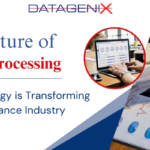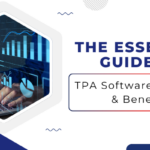Claims Software Systems: The Future of Smart Claims Handling
April 23, 2025
In the ever-evolving landscape of insurance, staying ahead of the game is imperative for companies looking to enhance processes, elevate customer experiences, and mitigate risks. As the industry pivots towards digital transformation, the integration of advanced analytics and machine learning within claims software is reshaping traditional practices and opening doors to unprecedented efficiency and innovation.
Evolution of Claims Software: Embracing Automation and Efficiency
Gone are the days of labor-intensive claim processing characterized by manual data entry and disjointed systems. Advancements in technology have ushered in a new era of claims software solutions that leverage sophisticated analytics and machine learning algorithms to automate processes and streamline operations. This evolution has significantly reduced processing times and enhanced accuracy, marking a seismic shift in how insurers manage claims.
Understanding Advanced Analytics: Unveiling Insights for Informed Decision-Making
Advanced analytics empowers insurers to glean actionable insights from vast and diverse datasets, both structured and unstructured. By harnessing complex methodologies and algorithms, insurers can extract valuable information to optimize claims management processes and drive better outcomes. From identifying emerging trends to assessing risk factors, advanced analytics serves as a cornerstone for informed decision-making within the insurance realm.
Leveraging Machine Learning: Unraveling Patterns and Enhancing Efficiency
Machine learning, a subset of artificial intelligence, enables claims software systems to learn from historical data, detect patterns, and make informed predictions autonomously. Through continuous refinement and learning, machine learning models streamline mundane tasks, enhance fraud detection capabilities, and expedite claims settlements. This adaptive approach not only boosts efficiency but also fortifies insurers against emerging risks and fraudulent activities.
Benefits of Advanced Analytics and Machine Learning: Enhancing Efficiency and Customer Satisfaction
The integration of advanced analytics and machine learning into claims software yields a plethora of benefits for insurers and customers alike:
- Streamlined Processing: Automation of routine tasks such as data entry and document classification accelerates claims processing, minimizing errors and enhancing operational efficiency.
- Fraud Detection: Real-time analysis of claims data enables insurers to swiftly identify anomalies and fraudulent activities, safeguarding against financial losses.
- Predictive Analytics: By leveraging historical data and predictive modeling, insurers can anticipate future trends, optimize risk assessment, and tailor insurance offerings to individual needs.
- Personalized Experiences: Insights derived from customer data facilitate personalized interactions, fostering greater engagement and satisfaction among policyholders.
- Continuous Improvement: Machine learning models evolve, allowing insurers to refine algorithms, adapt to changing market dynamics, and drive continuous improvement in claims management practices.
Overcoming Challenges and Upholding Ethical Standards
While the benefits of advanced analytics and machine learning are undeniable, insurers must navigate challenges about data quality, model interpretability, and ethical considerations. Ensuring the integrity and transparency of algorithms, along with adherence to regulatory frameworks, is paramount to maintaining customer trust and compliance with industry standards.
Conclusion: Pioneering the Future of Insurance Claims
In conclusion, the convergence of advanced analytics and machine learning represents a paradigm shift in the insurance landscape, offering unprecedented opportunities for innovation and efficiency. By embracing these transformative technologies, insurers can navigate the complexities of an evolving digital ecosystem while delivering unparalleled value to customers. As the industry marches towards a future defined by automation and data-driven decision-making, those who harness the power of advanced analytics and machine learning will emerge as trailblazers, setting new standards for excellence in claims software.
How Health Claims Management Software Transforming The Industry?
February 7, 2025How Claims Software Can Transform Your Claims Process?
January 29, 2025The Need For Healthcare Claims Management Software
January 13, 2025Reasons You Should Invest in Claims Management Software
January 7, 2025The Essential Guide To TPA Software Features & Benefits
December 24, 2024Claims Management Software: Key To Streamlining Your Business
December 18, 2024How TPA Software Solutions Transformed Medical Claims Management?
November 20, 2024









